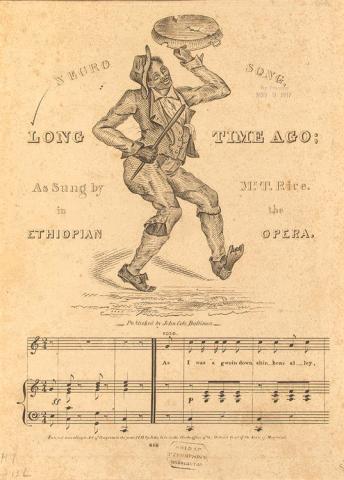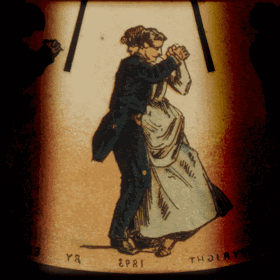"I adore art...when I am alone with my notes, my heart pounds and the tears stream from my eyes,
and my emotion and my joys are too much to bare.”
AUTHOR: Giuseppe Verdi
MEANING OF THE QUOTE:
“The emotion and joy felt from the act of creating art is totally
MEANING OF THE QUOTE:
“The emotion and joy felt from the act of creating art is totally
fulfilling.”








COMPOSER
COPLAND
Themes from:
"Our Town" and "The Red Pony"
Grover's Corners (from Our Town)
EMI Studios, London England; Producer: Paul Myers - June 1974
Grandfather's Story (from The Red Pony)
The Phoenix Symphony - conducted by James Sedares - May 1991
http://www.youtube.com/watch?v=_xb4Gk_n4TM&feature=related
-----------------------------------------------
-----------------------------------------------
Our Town Suite
Conducted by Aaron Copland
As used in the Spike Lee film "He Got Game" (1998)
Our Town,
Thornton Wilder’s
affecting stage portrayal of life and death in a New England village,
opened on Broadway in February 1938. It scored an immediate success.
Brooks Atkinson, theater critic of the New York Times, called it
“a beautifully evocative play ... [that] has transmuted the
simple events of human life into universal reverie.”
Audiences agreed, and Our Town enjoyed an initial Broadway
run of 336 performances. The play’s triumph called Wilder to
Hollywood, where he wrote a screen adaptation of his work
that was filmed in 1939.
In 1940, when the play was about to become a film, the Hollywood
producer Sol Lesser asked Copland (who had recently composed
music for the film version of John Steinbeck’s Of Mice and Men)
to compose the music. Copland admired Wilder, and when he heard
that ''Our Town'' had been written mostly at the MacDowell Colony
and that Grover's Corners was patterned
after the town of Peterborough, N. H.,
| Bird's-eye View of Peterborough, NH |
where Copland had composed several musical works,
the combination was too much for the composer to resist.
Copland had seen Wilder’s play, but he now re-read
it and sketched some musical ideas that occurred to him.
“My job,” he observed, “was to create the atmosphere of a typical
New Hampshire town, and to reflect the [film’s] shifts from the real
to the fantasy world. Because of the nostalgic nature of the story, most
of the music had to be in slow tempo.... I tried for clean and clear
sounds, and in general used straightforward harmonies and rhythms
that would project the serenity and sense of security of the play.”
The score for Our Town was composed in 1940, and the
film, after getting its first showings in May of the same
year, opened to acclaim scarcely less enthusiastic than
that garnered by Wilder’s play. Before the movie appeared
widely in theaters, Copland prepared a short concert excerpt
(and adapted some excerpts for piano), which was first
performed on the following June 9th during a radio broadcast
by the Columbia Broadcasting Symphony under
| Howard Barlow and the Columbia Broadcasting Symphony |
Afterward, the composer prepared a more carefully crafted version
of the suite. This definitive (revised) version received its first
performance on May 7, 1944, by the Boston Pops, conducted by
Leonard Bernstein, to whom Copland dedicated the score.
Our Town
Suite for Piano
Features Three Selections:
1] The Story of Our Town
2] Conversation at the Soda Fountain
3] The Resting Place on the Hill
Performed by Eric Parkin
OUR TOWN (1940)
Full Movie
Adaptation of Thornton Wilder's Pulitzer Prize-winning
play set in a small New England town in the early 1900's.
The story tells of the drama and conflict in every family.
Nominated for five Academy Awards in 1940.
With captions.
OUR TOWN (1940)
Full Movie
Without captions.

LINKS
ARTICLE FROM REVIEW SHEETS:
http://www.reviewsheetscentral.com/?/rs/10/music_jun.htm
Characters
Stage Manager - The Stage Manager has no name other than his title, and he
seems to exist both in the world of the audience and the world of the play,
where he assumes various roles within the daily life of Grover's Corners
(a druggist and a minister, notably). He exercises control over the action
of the play, moving the other characters around, halting their conversations
for his own interjections, and informing the audience of events that we do
not see. With his omniscient point of view and power over the events on
stage, he occupies an almost divine function in the story.
George Gibbs - The son of Dr. Gibbs and Mrs. Gibbs. A decent, upstanding
young man, George is a high school baseball star who plans to become a
farmer after high school. His courtship of and marriage to Emily Webb is
central to the play's limited narrative structure.
Dr. Gibbs - George's father, and the town doctor for Grover's Corners. (The
Gibbs and Webbs are next-door neighbors.)
Mrs. Gibbs - George's mother, and Dr. Gibbs's wife.
Mr. Webb - Emily's father, and the editor of the local newspaper.
Mrs. Webb - Emily's mother, and Mr. Webb's wife.
Mrs. Soames - A gossipy woman who sings in the choir with Mrs. Webb
and Mrs. Gibbs.
Mr. Stimson - The choirmaster. His alcoholism is a subject of gossip in
Grover's Corners.
Rebecca - George Gibbs's younger sister.
Wally Webb - Emily Webb's younger brother.
Howie Newsome - The milkman in Grover's Corners.
Joe Crowell, Jr. - A paperboy.
Si Crowell - Joe Crowell's younger brother, also a paperboy.
Professor Willard - A professor at the state university.
Constable Warren - A local policeman.
Sam Craig - Emily Webb's cousin, who has left town but returns for her
funeral.
Joe Stoddard - The undertaker in Grover's Corners.
Summary
Our Town is introduced by the Stage Manager, who welcomes the audience
to Grover's Corners, New Hampshire, in May of 1901. The stage is largely
empty, save for some tables and chairs that represent the homes of the Gibbs
and Webb families, where most of the action in Act I takes place. After the
Stage Manager's introduction, we watch a typical day unfold in the town. Dr.
Gibbs returns from an early morning delivery of twin babies; Mrs. Gibbs and
Mrs. Webb make breakfast, send their children off to school, and meet to
gossip in their gardens. Then we have an interruption, as Mr. Webb and
Professor Willard tell the audience some basic facts about the town. Afternoon
arrives, and George Gibbs walks home from school with Emily Webb, talking
about homework. That evening, Mrs. Webb and Mrs. Gibbs come home from
choir practice together, while George and Emily talk to one another through
their open windows. As night falls, the first act comes to an end.
Act II takes place three years later, on George and Emily's wedding day. The
morning is rainy, and George goes over to see his fiancée, only to be shooed
away by Mrs. and Mr. Webb, who insist that seeing the bride-to-be is bad luck.
Then the Stage Manager introduces a flashback to the previous year, when
George and Emily went to get an ice cream soda together, and their courtship
began. After the flashback, we return to 1904, and their wedding day. Both
bride and groom are jittery, but their parents calm them, and they go through
with the marriage--with the Stage Manager officiating as minister. They go
out together, and the second act ends.
As Act III begins, nine years have passed, and the scene has shifted to the
cemetery, where Emily is going to be buried (she has just died in childbirth).
As the funeral goes ahead, we hear the voices of the dead, including Mrs
. Gibbs. They are detached witnesses to the goings-on, having reached a point
of understanding where they are no longer concerned with earthly events. The
newly-buried Emily joins them, and quickly decides to go back and relive part
of her life. She chooses her twelfth birthday, and we watch as she steps into
the past and begins to live the day again. However, she quickly becomes
unhappy because she can see and understand so much more than the living,
and demands to be taken back to the cemetery. As she settles in to the peaceful
wisdom of the dead souls, George comes and weeps by her tomb. "They don't
understand, do they?" she says of the living, while the stars come out over
Grover's Corners, and the play ends.
-----------------------------------------------
Probably the best known of his film
scores, Aaron Copland composed this
for the 1948 Republic Pictures film
The Red Pony (1949)
(on the studio lot in the San Fernando
Valley, California), directed by
(a collection of short stories or vignettes) by
John Steinbeck. An LP, conducted by Copland,
was issued of the original soundtrack recording which
was orchestrated by R. Dale Butts and Nathan Scott.
Copland adapted his score into a concert suite,
and completed it during August of the same year
in response to a commission from Efrem Kurtz,
Houston Symphony Orchestra on October 30, 1948.
John Steinbeck’s well-known tale is a series of vignettes concerning a ten-
year-old boy named Jody and his life in a California ranch setting.There is
a minimum of dramatic or startling action in the plot. Rather, the story gets
its warmth and sensitivity from the character studies of Jody, Jody’s
grandfather, the cow-hand Billy Buck, and Jody’s parents, the Tiflins.
The effectiveness of The Red Pony score stems from Copland's belief that
film music should be subordinate to the film it accompanies. Copland
composed The Red Pony score using his self-described method of "assembly,"
augmenting this process with devices to synchronize the music with the picture.
Examination of archival sources shows how the score reflects the acknowledged
influence of Igor Stravinsky, the needs of the film medium, and the plot of The
Red Pony specifically. Despite Copland's modern style characteristics, the music
functions much like a conventional Hollywood film score.
Six-Part Orchestral Suite
The orchestral suite, originally arranged by Copland for the
Houston Symphony Orchestra, lasts approximately 20–25
minutes and consists of six separate pieces:
Morning on the Ranch (I)
from "The Red Pony" Suite
Conducted by JoAnn Falletta
The Gift (II)
from "The Red Pony" Suite
Dream March and Circus Music (III)
from "The Red Pony" Suite
Performed by the New Philharmonia Orchestra
Conducted by Aaron Copland
Walk to the Bunkhouse (IV)
from "The Red Pony" Suite
Conducted by Leonard Slatkin
Happy Ending (VI)
from "The Red Pony" Suite
Conducted by Paul Phillips
The Pioneer Valley Symphony
In 1966, Copland transcribed selections (four movements of the six-part
orchestral suite were retained) from the orchestral suite for band (Red Pony
Film Suite for Band). The first performance of this work was scheduled for
the U.S. Navy Band under Anthony Mitchell
 |
| Lieutenant Commander Anthony A. Mitchell Leader, 1962-1968 |
at the Midwest Band and
Orchestra Clinic in December 1968.
The Red Pony Suite
Performed by The Gustavus Wind Orchestra
I. a & b. Dream March and Circus Music.
Jody tends to lapse into day-dreams. Two of them are pictured
here. In the first, Jody imagines himself with the cow-hand,
Billy Buck, at the head of an army of knights in silvery armor;
in the second, he is the whip-cracking ringmaster at the circus.
II. Walk to the Bunkhouse.
Billy Buck was a “fine hand with the horses,” and Jody’s
admiration knew no bounds. This is a scene of the two pals
on their walk to the bunkhouse.
III. Grandfather’s Story.
Jody’s grandfather retells the story of how he led a wagon
train “clear across the plains to the coast.” But he can’t hide
his bitterness from the boy. In his opinion, “Westerning has
died out of the people. Westerning isn’t a hunger any more.”
IV. Happy Ending.
Some of the title music is incorporated into the final
movement. A folk-like melody suggests the open-air
quality of country living.
Performed as a Ballet:
Morning on the Ranch (I)
from "The Red Pony" Suite
Conducted by Leonard Slatkin
Eugene Ballet Company
Choreographed by Toni Pimble 2010-2011 Season
at Hult Center for the Performing Arts - Eugene, Oregon
LINKS
http://www.newconservatory.org/music/coplandRedponyBass.pdf
http://www.yale.edu/yaleband/ycb/copland2.html
http://www.musicweb-international.com/film/2006/apr06/ed_redpony.html
-----------------------------------------------
http://www.yale.edu/yaleband/ycb/copland2.html
http://www.musicweb-international.com/film/2006/apr06/ed_redpony.html
-----------------------------------------------










.gif)




